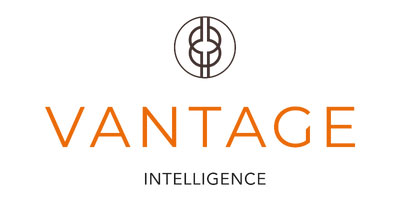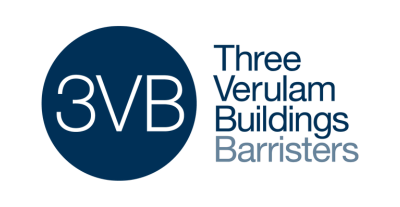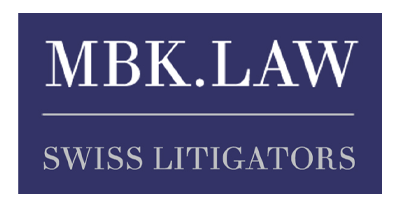Knowledge Hub
Join the Conversation!
Impartial and independent, ThoughtLeaders4 FIRE Knowledge Hub hosts cutting edge industry content and insight.
Email maddi@thoughtleaders4.com to submit content.
Asset Tracing & Recovery in Singapore
Date: 15/07/2020 Type: Articles Topic: FIRE | Insolvency | Civil Fraud | International | Enforcement |- Singapore is one of Asia’s leading centres for conventional banking and financial services, and is fast becoming a hub for digital payments and cryptocurrency platforms. As such, there is an ever-present risk of fraud. This article provides a snapshot of the mechanisms through which victims of fraud may seek to recover assets via civil proceedings in Singapore.
- Common causes of action
- Commonly invoked causes of actions in respect of fraud litigation include:
- conversion;
- unjust enrichment;
- breach of duty (fiduciary or otherwise); and
- deceit or fraudulent misrepresentation.
- It is also common for parties who have assisted the main fraudster or have received or helped transmit the proceeds of fraud to be joined as defendants. The common causes of action are:
- conspiracy;
- dishonest assistance; and
- knowing receipt.
- Interlocutory relief
- Plaintiffs can rely on the following tools available under Singapore’s court rules to identify, freeze and/or seize assets to aid in the main prosecution of the claim:
- Mareva (or freezing) injunctions coupled with ancillary disclosure orders;
- Anton Piller orders; and
- pre-action disclosure / interrogatories.
- Mareva injunctions are typically applied for at the commencement of civil proceedings and on an ex parte basis, so as to ensure that the defendant does not have notice of the proceedings and does not have the opportunity to dissipate assets. If applied for ex parte, full and frank disclosure must be provided by the plaintiff to the court and a minimum of two hours’ notification must be provided to the counterparty before the hearing, except in cases of extreme urgency or with leave of court. An undertaking as to damages will also have to be provided by the plaintiff.
- Mareva injunctions may also be sought in respect of third parties who are holding assets on behalf of the defendant or whose assets the defendant has control over.
- A court can grant a mareva injunction over assets held in Singapore when the following conditions are met:
- there is a valid cause of action over which the Singapore courts have jurisdiction;
- there is a good arguable case on the merits of the plaintiff’s claim;
- the defendant has assets within the court’s jurisdiction; and
- there is a real risk that the defendant will dissipate their assets to frustrate the enforcement of an anticipated judgment by the court.
- A standard adjunct to a mareva injunction is the ancillary disclosure order. This requires the defendant to disclose all of his assets, even if the assets restrained are limited to those of a certain value. This will allow the plaintiff to determine whether the defendant has been moving his assets in breach of the mareva injunction.
- Anton Piller (or search) orders are taken out for the purposes of searching premises and seizing evidence. Like Mareva injunctions, Anton Piller orders are usually taken out at the same time as the commencement of civil proceedings and on an ex parte basis.
- A court can grant an Anton Piller order if the following conditions are met:
- there is an extremely strong prima facie case;
- the potential or actual damage to the plaintiff is serious if the Anton Piller order is not granted;
- there is clear evidence that the defendant has incriminating documents in their possession; and
- there is a real risk that the defendant may destroy the incriminating documents before the inter partes application.
- Pre-action disclosure or interrogatories can be applied for to obtain information on who to sue and whether there is a cause of action against the suspected fraudsters. Such applications include Norwich Pharmacal and Bankers Trust orders. A court will grant such orders if the following conditions are met:
- the person from whom discovery is sought was involved in the wrongdoing, even if the involvement was innocent;
- the plaintiff must be able to show a reasonable prima facie case of wrongdoing against the defendant;
- the plaintiff must show that the disclosure sought is necessary to enable him to take action, or at least that it is just and convenient in the interests of justice to make the order sought; and
- there is credible evidence that the intended proceedings have a Singapore nexus.
- Interlocutory orders obtained from specified foreign jurisdictions may also be amenable to enforcement under Singapore’s statutory regime. Under the Reciprocal Enforcement of Foreign Judgments Act, which was recently amended in October 2019, an interlocutory order from a recognised court of a foreign country may be registered in Singapore if it would be just and convenient to do so. The Singapore government gazette will stipulate which specific courts are regarded as a “recognised court of a foreign country”; to-date, there has not yet been any such recognised foreign court in respect of the enforcement of an interlocutory order.
- Enforcement
- If the plaintiff is successful in proceedings, and the defendant fails to pay the judgment sum, the plaintiff can take out the following enforcement actions:
- examination of judgment debtor to compel the judgment debtor to reveal his assets;
- writ of seizure and sale for the appointment of a bailiff to seize the defendant’s property;
- garnishee orders to collect money from third parties who owe money to the defendant; and
- bankruptcy and winding up applications.
Author
Abraham Vergis, Danny Quah, Kenny Lau – Providence Law Asia (Singapore)
Our FIRE Corporate Partners

































